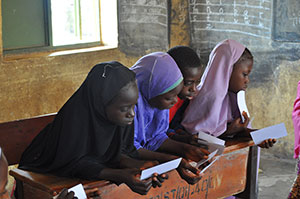Kyrgyz Media Joins SPRING in an Effort to Reduce Malnutrition in the Kyrgyz Republic
Starting on 15 September 2016, SPRING/Kyrgyz Republic hosted a two-day Media and Messenger Training in Bishkek for 32 members of national media in the Kyrgyz Republic. The event focused on malnutrition, which affects women and children throughout the country, and the media’s potential role in improving nutritional outcomes by focusing on special services and practices during the “1,000 days window of opportunity.”
 In June of 2016, SPRING facilitated an orientation to nutrition-sensitive agriculture as part of its work to support
In June of 2016, SPRING facilitated an orientation to nutrition-sensitive agriculture as part of its work to support 